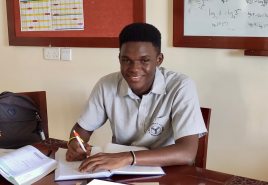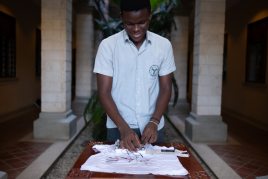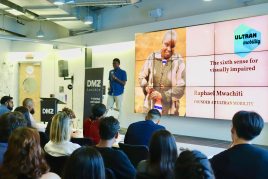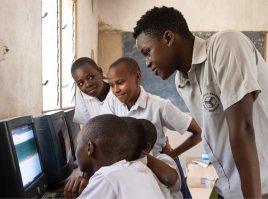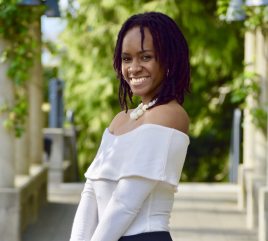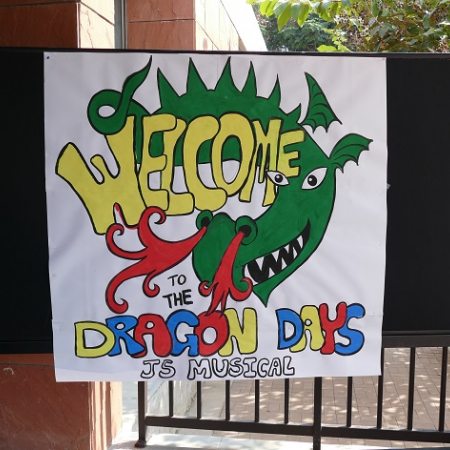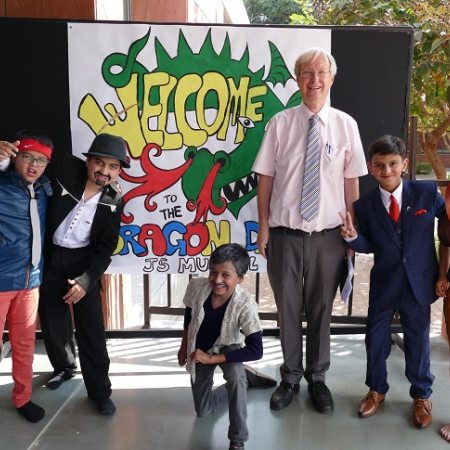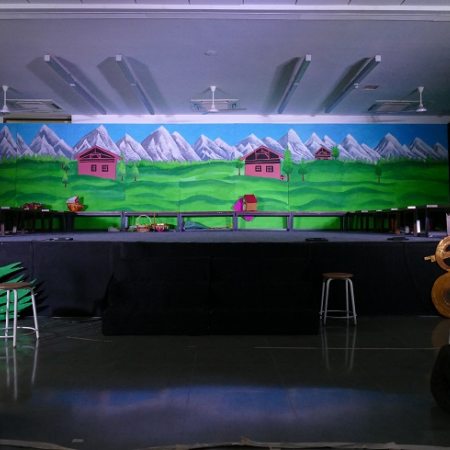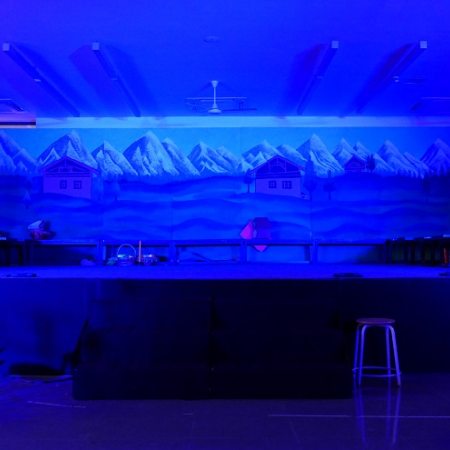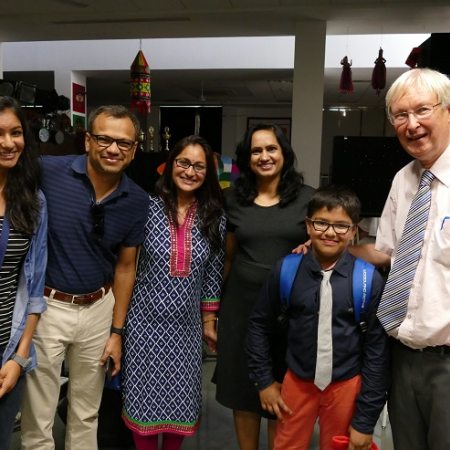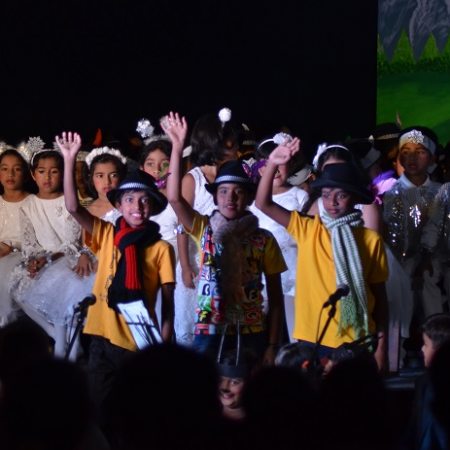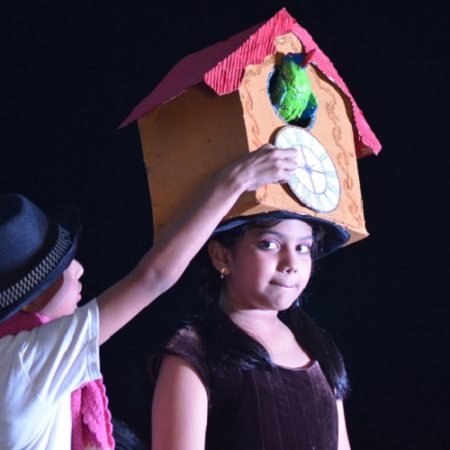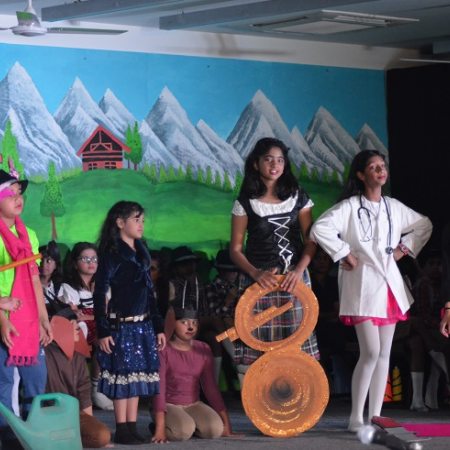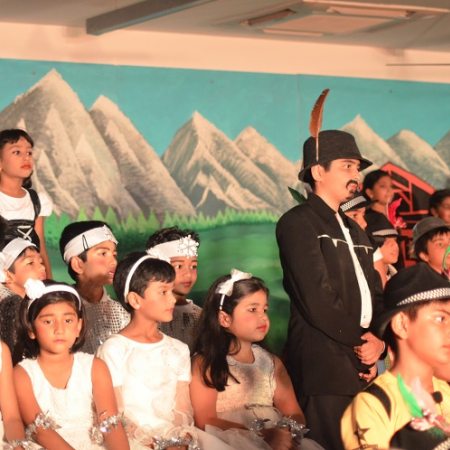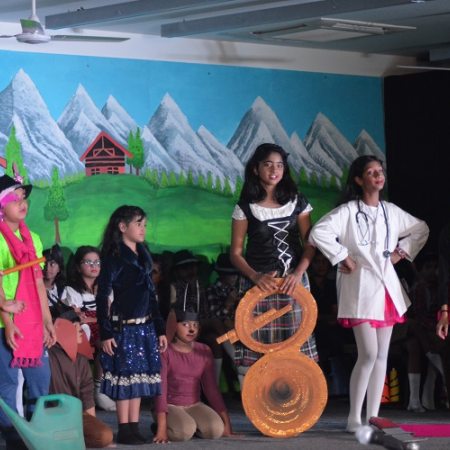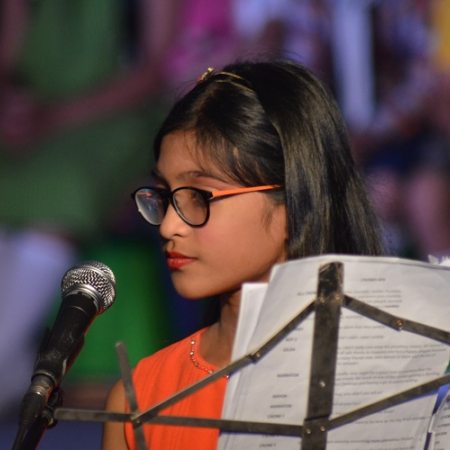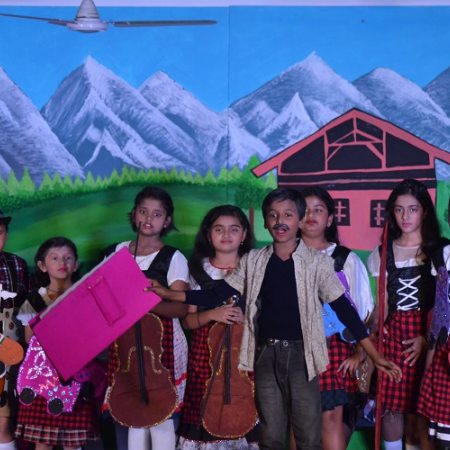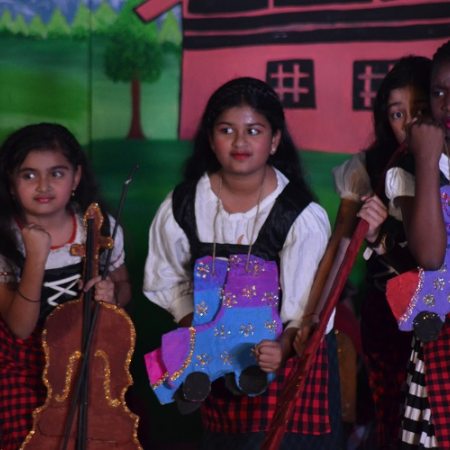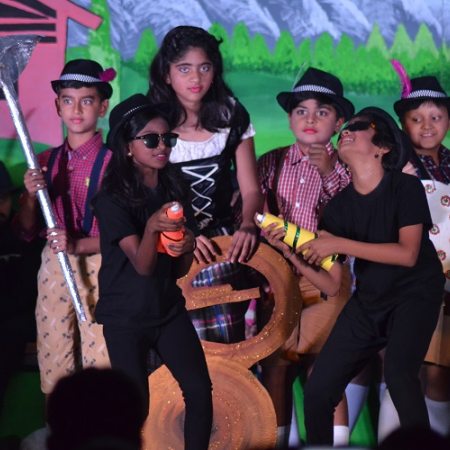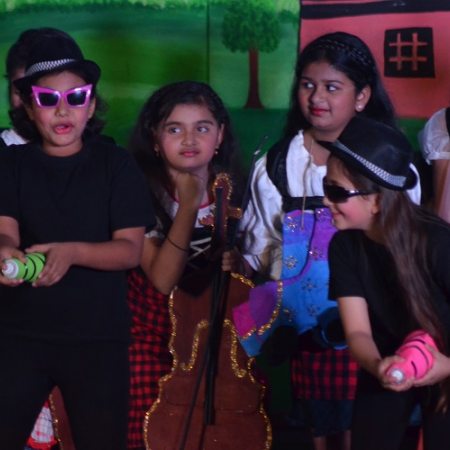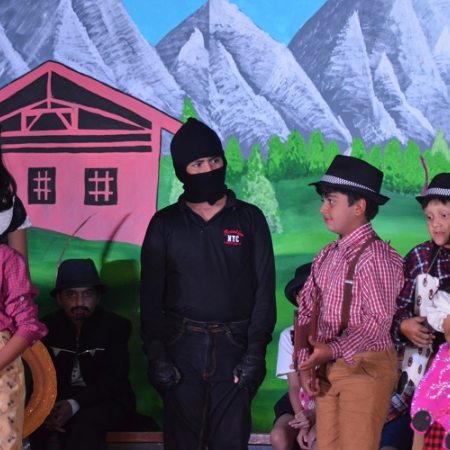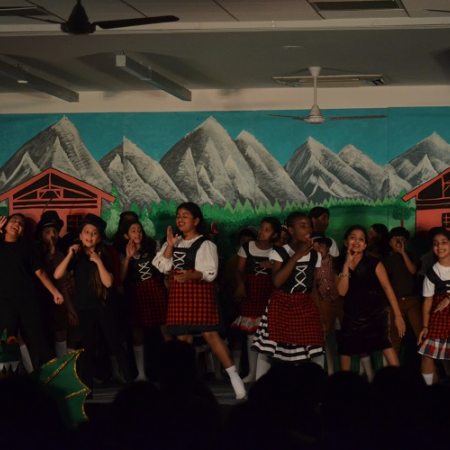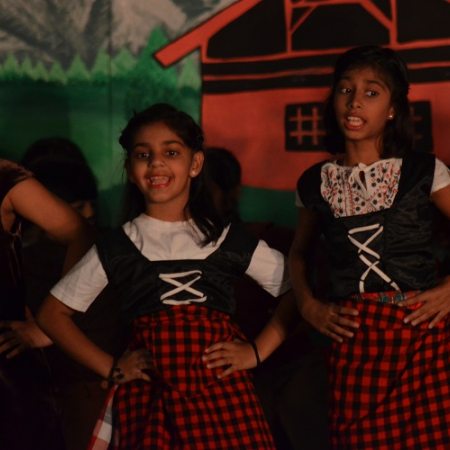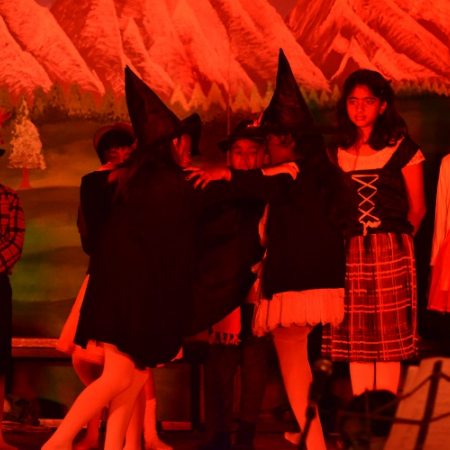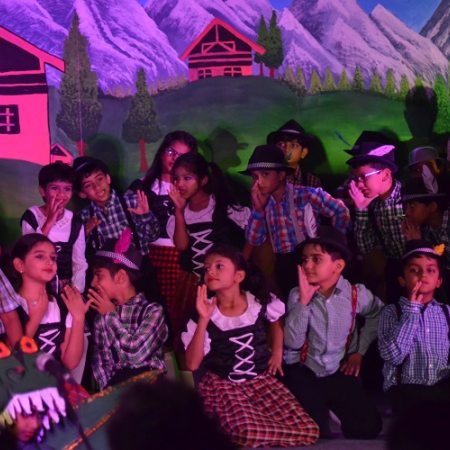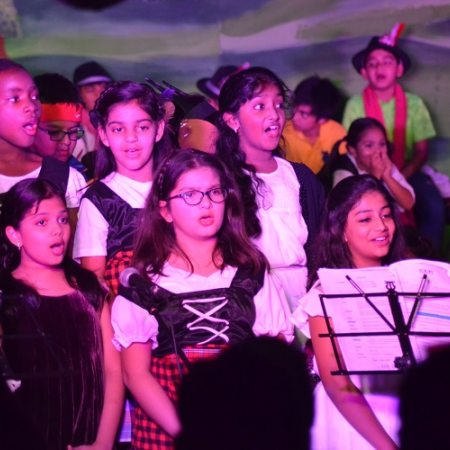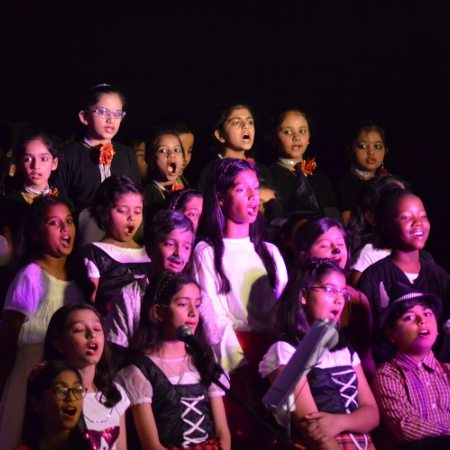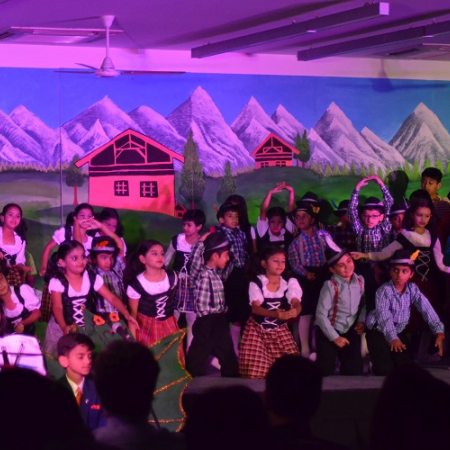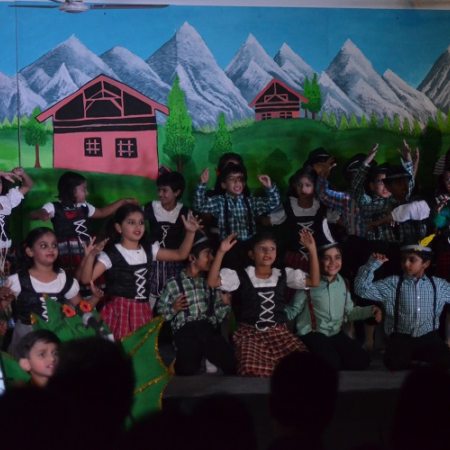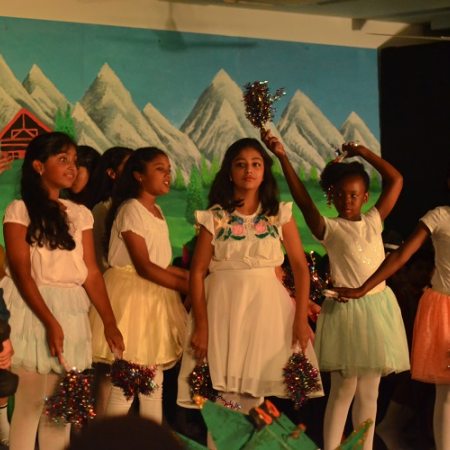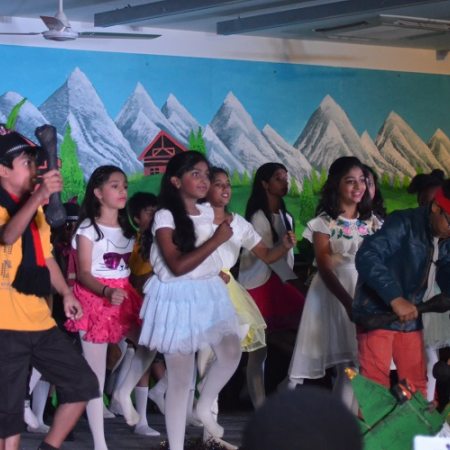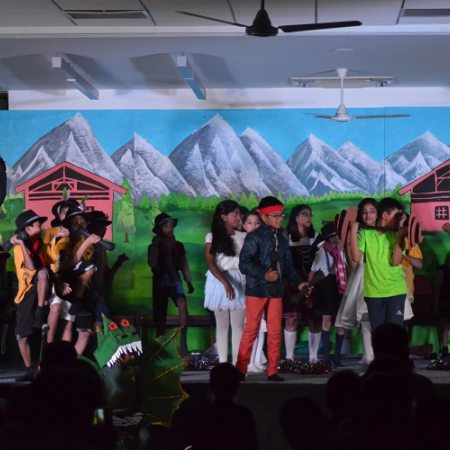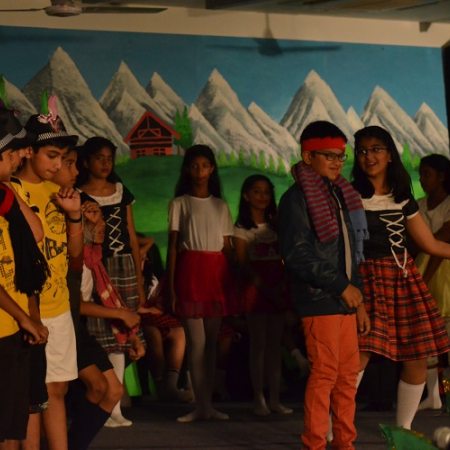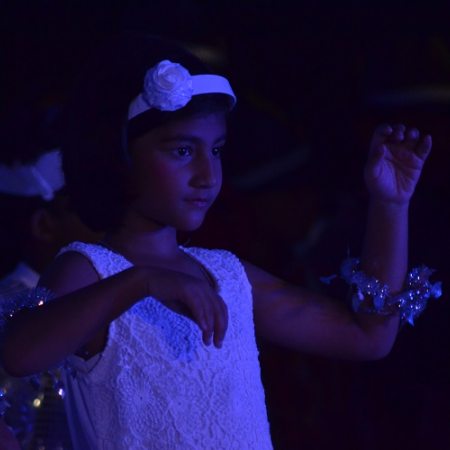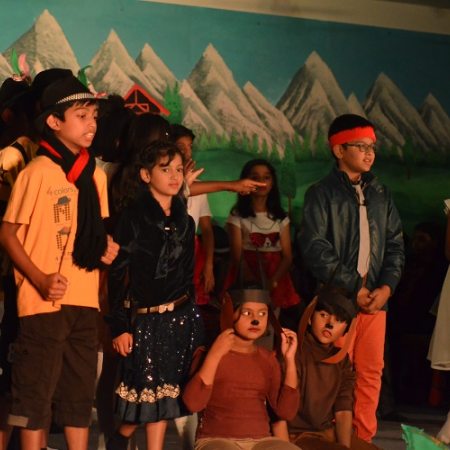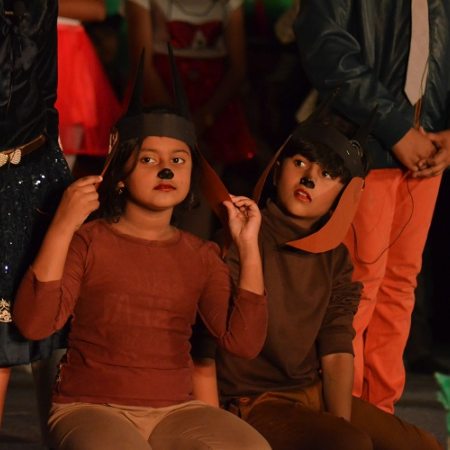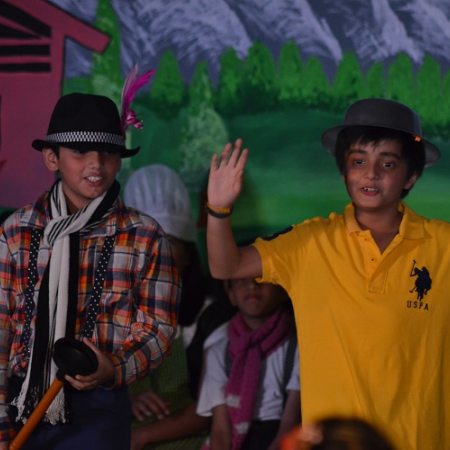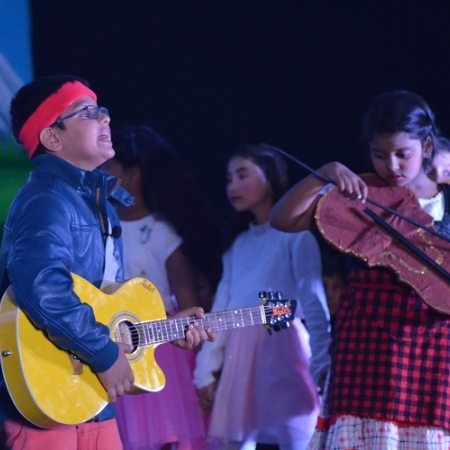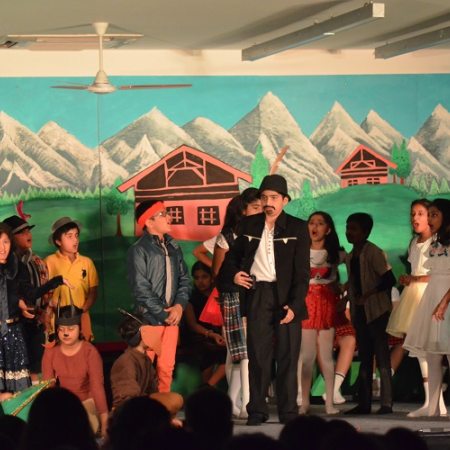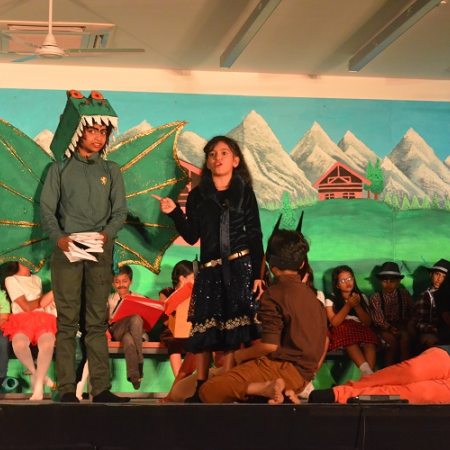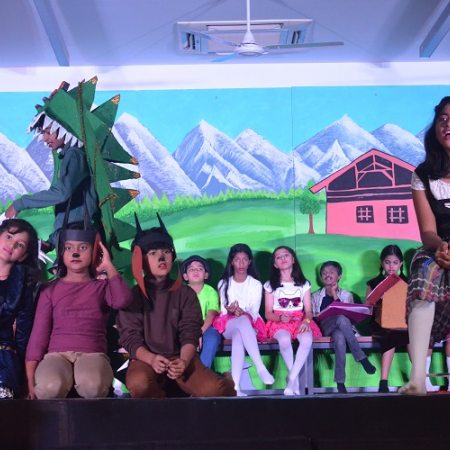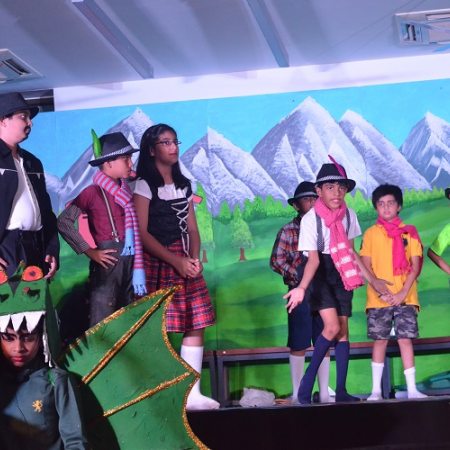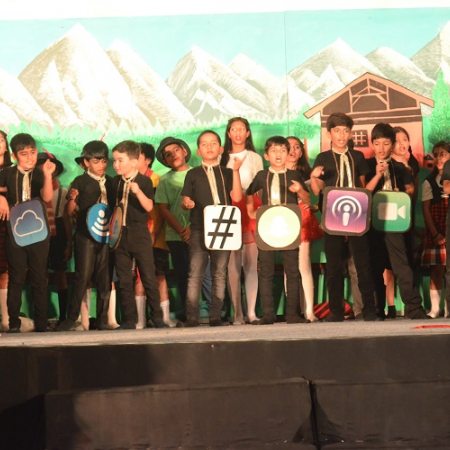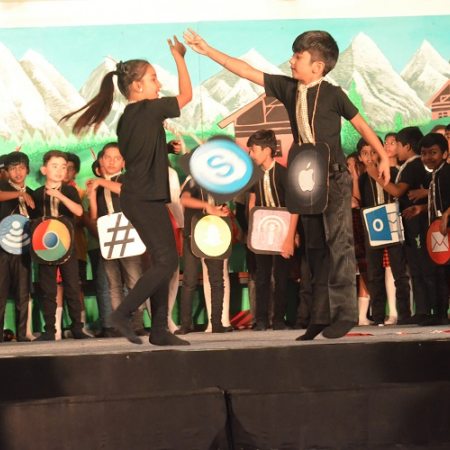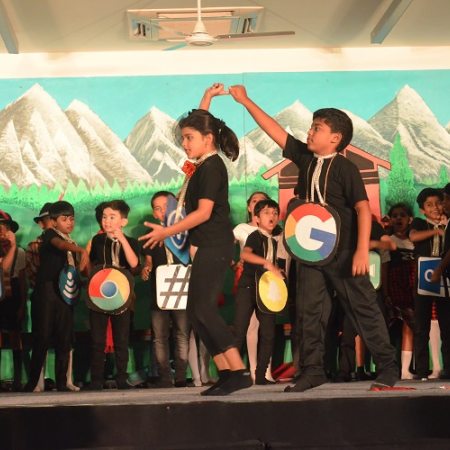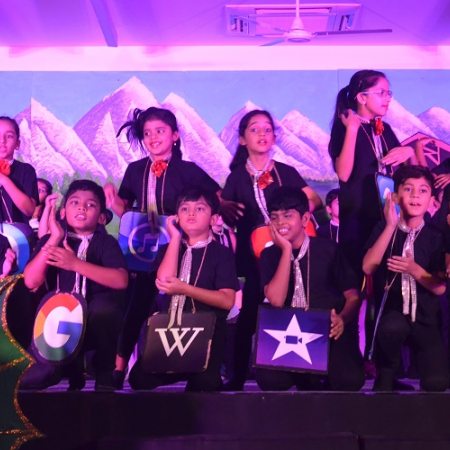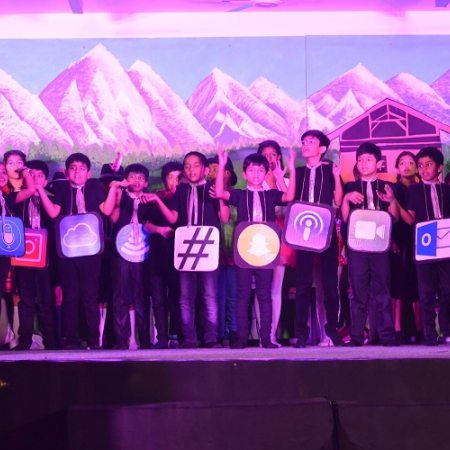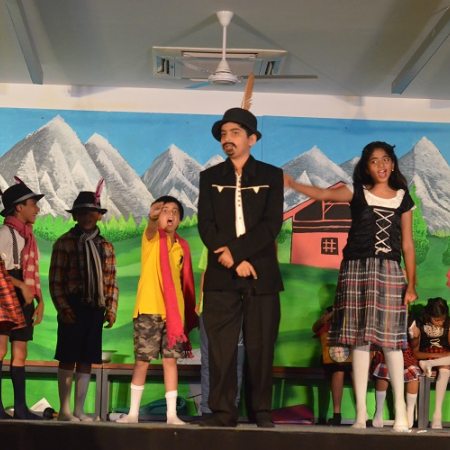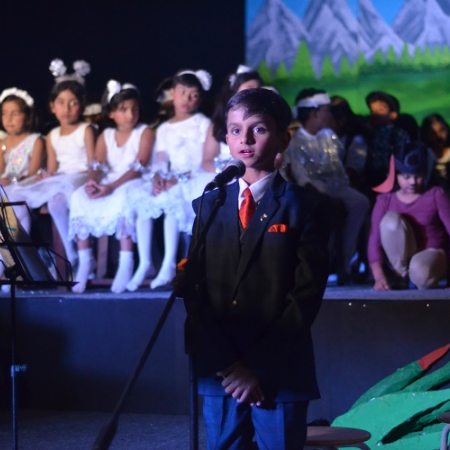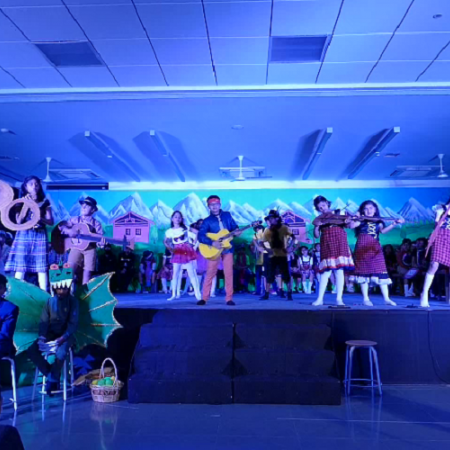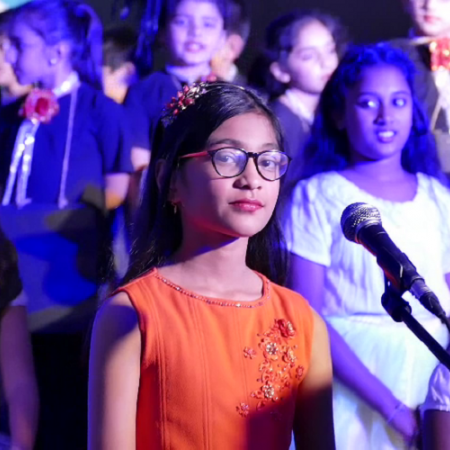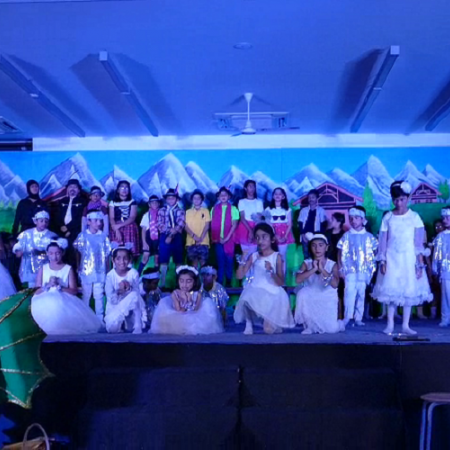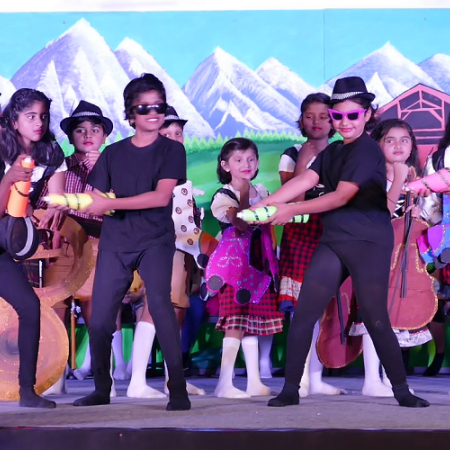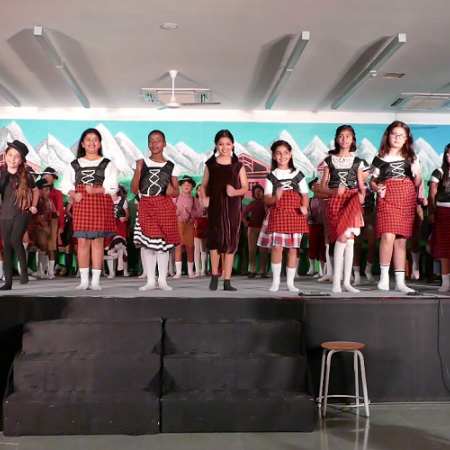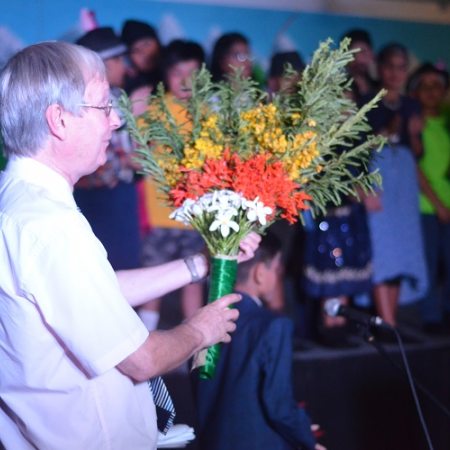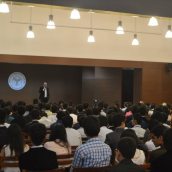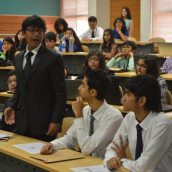Pinto Belo João: A determined teacher and a collaborative planner
“Being a teacher is not easy, because we have to teach and learn every day. I chose a career in teaching because I like to share what I know with others, especially young people, to help them to overcome the challenges in life. Being a teacher is like taking care of something special, so I decided to take care of that special thing, walking together in order to discover the world around us.”
Pinto Belo João is a grade 2 teacher at the Aga Khan Academy in Maputo. Born in Maputo, Mozambique, Pinto attended a teacher training course in Matola in 2007 where he became a primary teacher and then attended Pedagogical University in 2011 to study education. He came to the Academy as part of the Teacher Preparation Programme (TPP), which was established by the Aga Khan Academies to train recent teacher graduates to become International Baccalaureate (IB) teachers.
“Honestly I didn’t know many things about the Academy before I joined, but I always was eager to learn and grow professionally,” says Pinto. Through the Aga Khan Academy, Pinto says he has grown professionally in terms of learning new approaches to teaching and learning, trying new things and giving himself a chance to learn more. “Through professional development, the Academy helped me become a more effective teacher and a collaborative planner,” he says proudly.For Pinto, the most rewarding aspect of the Aga Khan Academy is teaching while surrounded by experts. This environment has given him the opportunity to try new things and granted him time to reflect on teaching strategies. This has been both valuable and powerful for Pinto as it allowed him to share experiences related to classes and receive guidance and support from others. What Pinto really likes about the Academy is the integration of the Aga Khan Curricular Strands. “In my opinion these Strands make us unique and different from others,” he says.
Reflecting on enlightening experiences at the Academy, Pinto narrates a particular day when he was teaching mathematics through games. He says that while he was giving instructions on how to play the game he was surprised to see the students already playing the game before he could even finish explaining. “I learned something that day: we should never underestimate our students. Sometimes we think that we have to teach something, but the students already know it. We need to be careful in our approaches,” Pinto remarks.
In this way, Pinto has learnt profoundly from his students and feels that the teacher-student relationship, reinforced by trust, is of the utmost importance. “We need to establish trust so that the process runs toward success both inside and outside the classroom,” he says.Relationships in the classroom must also involve parents – Pinto knows the importance and necessity of parental involvement in the education of their children. He regularly updates the parents about what they do in class and about their school trips – he also ensures that he shows parents the newsletter with stories of learning from the classroom. Some of the homework Pinto assigns includes parent personal experiences that they can share with their children.
At the Academy, Pinto says they try as much as they can to involve all students in activities and give each of them a role in groups to make them appreciate each other’s abilities. “By promoting activities like social community, [this] makes the students reflect on their own actions,” he remarks. Pinto explains that students come from different backgrounds and nationalities and that this is what makes the residential environment multicultural and promotes pluralism. When the students are exposed to this environment, Pinto says, “They learn more from each other and respect diversity. It is a great experience for them.” Ensuring a climate of pluralism on campus is not an easy task, Pinto says. “But through student’s responsibilities, we can ensure that they are working together.”
Raphael Mwachiti: Using technology to advance the community
When Raphael Mwachiti, a Diploma Programme (DP) student, got admitted to the Aga Khan Academy Mombasa on a fully funded scholarship through the Talent Identification Programme (TID) in 2015, he knew it was a life-changing opportunity.
“I was thrilled and filled with joy that I got to see my parents be proud of me for getting the admission but I also understood that it was now up to me to make use of the resources and support from the Academy to make something of myself,” Raphael says.
After five years at the Academy, he says his experience feels like a great adventure, one he had never thought of undertaking.
“I got to see different perspectives and meet people from different backgrounds,” Raphael says. “I’ve also been able to go to new places like Canada and Tanzania and learn many new things.”
Although he hit many bumps along the road, he says they’ve helped him grow as an individual and have given him a glimpse of the world to better prepare him to be an active member of his community.
Raphael has not only had outstanding achievements in the classroom but has applied what he’s learnt to effect change outside the classroom. He has embraced the ethos of the Academy by striving to improve the lives of others.
In 2019 he won the Ryerson Sandbox Basecamp prize for his innovation to aid the visually impaired. He was awarded a grant of $5,000 CAD and specialist professional advice to help advance his start-up. He is now working to produce these devices for further testing with the hope of impacting more than 250,000 visually impaired persons in Kenya.Additionally, Raphael helps farmers in his rural home of Kinango learn new farming techniques like greenhouse irrigation and composting, which are now being utilised to help increase harvest in all seasons thus increasing sustainability within the community. He also teaches computer skills to kids in his old school, which has evoked an interest in technology within them.
"I first met Raphael when we were doing the Talent Identification testing in October 2014,” says Dean of Admissions Paul Davis. “We sat outside one of the classrooms at St. Joseph's Primary School in Kinango. The first thing I remember asking him was whether he was emulating the great Italian artist. He mentioned that the name came from his dad, who was an artist and painted local wildlife and scenes to sell to the tourists in his shop in Ukunda."
"What I admired about Raphael at that time as well as his intellectual capacity was his honesty," said Paul. "He said that the most difficult moment he had to deal with was when he saw a child selling charcoal in Kinango and not going to school; he had reported it and the child was given free education. In a personal story he had written he mentioned a story about rescuing a child from a house on fire - when I asked about this and whether this had really happened, he admitted that it was not true and he had been told to write this by his teacher - he said he knew at the time that he should not be writing this and felt uncomfortable doing so. I had a feeling then that if we chose him he was going to be a self-driven and principled leader. I am pleased to see that these initial feelings were correct and he has turned into a fine ambassador for the Academy".
After being at the Academy for the last five years, Raphael now feels an even stronger responsibility to give back to his community and society at large. “With this understanding, I believe that the next wave of leaders coming from the Academy will be the foundation of positive change in the world,” says Raphael.
Watch Raphael's story, which is featured on the Aga Khan Development Network:
Lilian Odera (Class of 2015): Passionate about change in the community
Lilian Odera, a bona fide leader and advocate of change, is a 2015 alumna of the Aga Khan Academy Mombasa. Born in Kenya and raised in both Kenya and Germany, she speaks English, Swahili and German. Owing to this culturally diverse background, Lilian's parents were prompted to send her to AKA Mombasa, a pluralistic community she could thrive in.
The Academy nurtures future leaders through its unique curriculum and this provided the perfect environment for Lilian to hone her leadership skills. In addition to being an active sportswoman, Lilian served as a House Captain and member of the Student Representative Council. While in her last year of the International Baccalaureate (IB) Diploma Programme, she was awarded the Karen McKellin International Leader of Tomorrow (ILOT) award to study at the University of British Columbia (UBC). The award recognises students with superior academic achievement, leadership skills and involvement in community service.
“I would say my experience at the Academy was like a springboard into my future,” Lilian says of her time at the school. “I had amazing mentors and none of what I achieved would have been possible without their support.”
While at UBC, Lilian continued to pursue opportunities in line with her passion to effect change in the community. She has participated in several community-based projects including organising the first Afrocentrism Conference, which celebrated the identities of people with African descent. The successful event, which pulled in over 500 attendees and raised CAD $60,000, had acclaimed Kenyan author Ngugi wa Thiong’o as the keynote speaker. As part of her work as founder and event coordinator for a project that actively involved working with the community around her, she was awarded the prestigious Nestor Korchinsky Student Leadership Award in January 2020. In addition, she also recently marched with the Black Lives Matter movement in Vancouver, Canada. Lilian also won a $5,000 scholarship in 2019 and got into cooperative placement. In a nutshell, her experience at UBC was quite transformative, as she says, “I’m leaving UBC a different woman than I came.”
Although she has graduated with a Bachelor of Media Studies, Lilian is now looking to venture into education. While it is not a career path she imagined, her passion for directly working with people to creatively find solutions to issues is part of the reason she wants to get into education.
“I’ve witnessed how one event, how one change in policy can have a direct impact on how students adapt to new places, develop new relationships and understand themselves and the world around them,” says Lilian. “Although I’ve previously been shy about considering myself a leader, I've come to own that title in part because I've seen the level of trust and confidence people have put in me to execute a project. Being a leader comes with a lot of responsibility and I've never particularly been shy of putting in the work - just witnessing people's reactions, their joy, relief and celebration, is such an amazing reward in itself.”
If there's one lesson from the Academy she has continued to carry with her, it's the importance of being part of a community and working with the community. This has become apparent in all the community-based initiatives she has undertaken ever since leaving the institution.
"As I've grown, I've realised that my continuous involvement with community organisations here in Vancouver is in part influenced by that," Lilian states. "It is through community work that I learn more about myself and the world around me."
So what advice does she have for the young leaders at AKA Mombasa? “It's very easy to be narrowly focused on just grades. Yes, they are important, but life is not measured purely in letter grades. I recommend students seek out adventures and experiences to supplement what they learn in the classroom - whether it's travelling, volunteering at a charity, starting or joining a club. It's important to become holistic and wholesome, to be rich in experience and knowledge.”
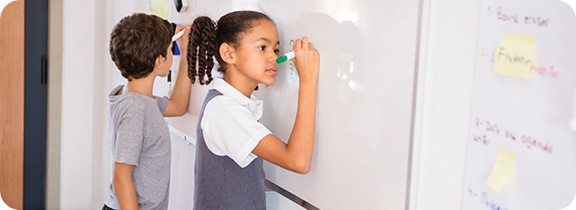
Aga Khan Curricular Strands
The Aga Khan Curricular Strands (AK Strands) are a unique part of the programme offered by the Aga Khan Academies. The AK Strands are areas of learning aimed specifically at developing knowledge, skills and attitudes required by future leaders.
Our goal at the Academies is to develop young people who have strong local roots and are also globally minded. They should be able to become leaders in whichever fields they choose.
To help achieve this goal, we have identified five areas of learning, the Aga Khan Curricular Strands, that we believe are important for our students. These are:
- Ethics
- Pluralism
- Cultures (with an emphasis on Muslim civilisations)
- Governance and Civil Society
- Economics for Development.
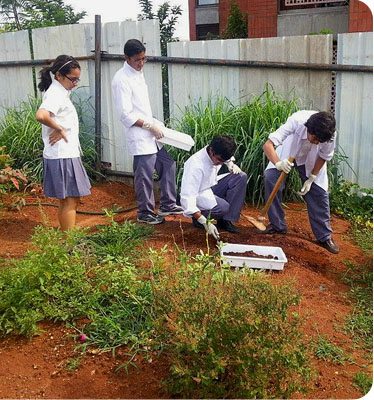 Implementing the AK Strands
Implementing the AK Strands
The Aga Khan Curricular Strands are not taught as independent subjects. Instead, we weave them into the existing subject areas of the academic curriculum. They help inform the selection of content and themes for study. The AK Strands also provide direction for school life outside the classroom in areas such as policy making, recruitment, student life and residential life.
Two of the AK Strands, Ethics and Pluralism, help students develop values and dispositions required by ethical leaders. Our students learn about these areas in theory and are also encouraged to practice what they learn in their everyday lives.
Through the other three AK Strands, our students learn about ideas that are important to the functioning of societies. In particular, they learn about how these ideas impact people’s lives in countries of the developing world. The knowledge they gain helps them understand key issues from both local and international perspectives.
The AK Strands in practice
The Aga Khan Curricular Strands were developed at the first Aga Khan Academy in Mombasa and are designed to be used in different cultural contexts. Teachers at the Aga Khan Academy Hyderabad helped tailor the AK Strands for the local environment in India.
For example, Grade 3 students worked on a history and geography unit about Hyderabad that related to Economics for Development. The students examined how the physical features of the area influenced the city and its economic activity. They learned about employment today and also looked at traditional forms of work, including a visit to a nearby weaving cooperative. This unit helped the students understand both general ideas about economics and their impact on daily life in Hyderabad.
Through the Aga Khan Curricular Strands, our students develop attitudes and values that will help them throughout their lives. They also gain knowledge and understanding that will allow them to contribute positively to their societies in the future.
For more information on the educational programme offered at the Aga Khan Academy Dhaka, please visit the Academic Programme page.
Aga Khan Curricular Strands
The Aga Khan Curricular Strands (AK Strands) are a unique part of the programme offered by the Aga Khan Academies. The AK Strands are areas of learning aimed specifically at developing knowledge, skills and attitudes required by future leaders.
Our goal at the Academies is to develop young people who have strong local roots and are also globally minded. They should be able to become leaders in whichever fields they choose.
To help achieve this goal, we have identified five areas of learning, the Aga Khan Curricular Strands, that we believe are important for our students. These are:
- Ethics
- Pluralism
- Cultures (with an emphasis on Muslim civilisations)
- Governance and Civil Society
- Economics for Development.
 Implementing the AK Strands
Implementing the AK Strands
The Aga Khan Curricular Strands are not taught as independent subjects. Instead, we weave them into the existing subject areas of the academic curriculum. They help inform the selection of content and themes for study. The AK Strands also provide direction for school life outside the classroom in areas such as policy making, recruitment, student life and residential life.
Two of the AK Strands, Ethics and Pluralism, help students develop values and dispositions required by ethical leaders. Our students learn about these areas in theory and are also encouraged to practice what they learn in their everyday lives.
Through the other three AK Strands, our students learn about ideas that are important to the functioning of societies. In particular, they learn about how these ideas impact people’s lives in countries of the developing world. The knowledge they gain helps them understand key issues from both local and international perspectives.
The AK Strands in practice
The Aga Khan Curricular Strands were developed at the first Aga Khan Academy in Mombasa and are designed to be used in different cultural contexts. Teachers at the Aga Khan Academy Hyderabad helped tailor the AK Strands for the local environment in India and the teachers at the Aga Khan Academy Dhaka will do the same.
For example, grade 3 students worked on a history and geography unit about Hyderabad that related to Economics for Development. The students examined how the physical features of the area influenced the city and its economic activity. They learned about employment today and also looked at traditional forms of work, including a visit to a nearby weaving cooperative. This unit helped the students understand both general ideas about economics and their impact on daily life in Hyderabad.
Through the Aga Khan Curricular Strands, our students develop attitudes and values that will help them throughout their lives. They also gain knowledge and understanding that will allow them to contribute positively to their societies in the future.
For more information on the educational programme offered at the Aga Khan Academy Dhaka, please visit the Academic Programme page.
2017 Academy Junior School Musical, Dragon Days
The annual Academy Junior School Musical, Dragon Days, was performed at the Junior School Library on the afternoon of Friday 1st December 2017.
Synopsis of Dragon Days
In the pretty, alpine village of Stumbledorf (just a short ‘trip’ away), the overdramatic villagers await a hero to rescue them from the mythical creature whose presence overshadows their otherwise idyllic mountain home. Just in the nick of time, seemingly in fulfilment of an ancient prophecy given by three wizened old crones, Tommy Rumble and his fearsome mother stumble into Stumbledorf, which causes great excitement. Could Tommy finally be the answer to the village’s problems? Can he get fit in time to fight the dragon or will jealousy and mischief thwart his heroic exploits? Has the dragon really developed a taste for goats, or is it just a social media feeding frenzy? Will the village ever be free of its Dragon Days?
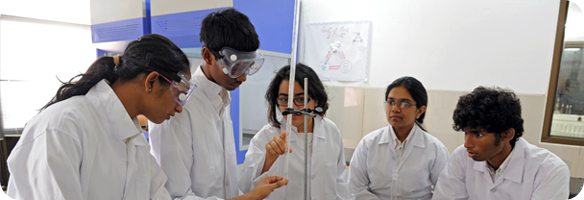
Academic Programme
The Aga Khan Academy Hyderabad offers an education of an internationally recognised standard of excellence to prepare students to become intellectually curious, globally-minded citizens of the world.
The Academy programme develops students who are committed to positive change and are able to understand and analyse complex issues of local, national and global significance.
Our curriculum is built on the framework of the International Baccalaureate (IB). The IB is a thorough, multidisciplinary curriculum that fosters:
- intellectual curiosity
- creativity
- leadership development
- social consciousness
- a pluralistic sensibility.
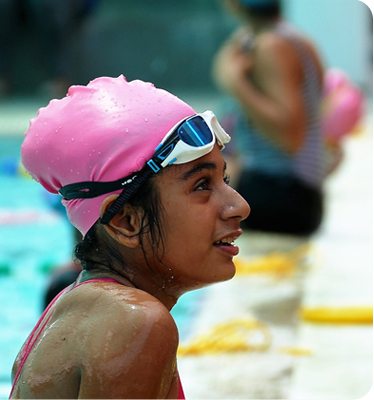 The IB is also known for preparing students for admission to the best universities in their own countries and abroad.
The IB is also known for preparing students for admission to the best universities in their own countries and abroad.
Our focus is on developing students' critical thinking skills and the ability to analyse issues. We also emphasise multicultural understanding and awareness. One of the ways in which we help our students develop skills for ethical leadership is through the Aga Khan Curricular Strands. These are cross-disciplinary areas of study that have been developed for the network of Aga Khan Academies.
Overall educational programme
Our curriculum is complemented by enrichment, athletic and community service initiatives. The overall educational programme is designed to educate well-rounded, civic-minded individuals. It enhances students’ academic excellence, leadership skills, sense of civic responsibility, understanding of global issues, and analytical and study skills. The programme also reinforces an understanding of local languages, history, cultures and environment.
When they graduate from the Academy, students are expected to be computer literate and have a thorough understanding of the diverse academic disciplines covered in the IB curriculum. They should have mastered at least two languages, including English. Through the planned international exchange programme, our students will be able to enhance their foreign language learning and appreciation of other cultures.
Our graduates are thus well prepared for the rigours of higher education and to pursue opportunities in an increasingly interdependent world.
For further information on the IB programmes offered at the Aga Khan Academy Hyderabad, please visit the following pages:
- Primary Years Programme (grades 1–5)
- Middle Years Programme (grades 6–10)
- Diploma Programme (grades 11–12).
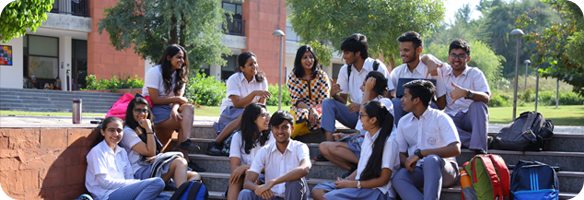
The Junior and Senior Schools
The Aga Khan Academy Hyderabad is made up of two schools, the Junior School and the Senior School, which together cater to students from grade 1 (age 6) to university entrance.
Junior School
All Junior School students follow the International Bacaalaureate (IB) Primary Years Programme (PYP). Through the PYP, our students learn to be confident, independent and creative learners.
The Junior School building has been designed to address the needs of younger children, with age-appropriate facilities and classrooms. In addition to the PYP classrooms, the building contains the Junior School library, and music, art and information technology rooms. There are also large playing fields and a playground.
Senior School
Students in the Senior School pursue either the IB Middle Years Programme or the IB Diploma Programme. Those from the local area can choose to attend as day students, while those from other parts of the country or region live on campus as part of the residential programme.
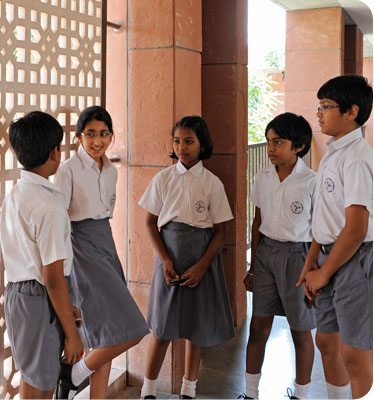 The Middle Years Programme is for students in grades 6–10. It helps them master essential skills and knowledge, and teaches them to be critical and analytical thinkers. The Diploma Programme is offered to students in the final two years of school. It is an internationally recognised and demanding programme that prepares students for university entrance.
The Middle Years Programme is for students in grades 6–10. It helps them master essential skills and knowledge, and teaches them to be critical and analytical thinkers. The Diploma Programme is offered to students in the final two years of school. It is an internationally recognised and demanding programme that prepares students for university entrance.
The school caters to both the intellectual and personal growth of students. It has a wide range of facilities that include:
- laboratories for the sciences and information technology
- art and music rooms
- library and resource centre
- career counselling centre
- student and teacher lounges
- cafeteria and dining area.
The building is networked so that computers become common resources for teachers and students. The multipurpose hall can be used for a variety of events ranging from theatre productions to parent–teacher meetings. The school also has swimming facilities as well as playing fields for soccer, field hockey and athletics.
For further information about applying to any of the programmes offered at the Aga Khan Academy Hyderabad, please refer to the admission requirements.
The MUN Press Corps
Reporters and photographers were on their feet at all times, running to capture a crisis update, to jotting down the points. As director, chasing them to do their work was a bit tedious, being left with a sea of words to look over. At the end of the day, the array of words and pictures will keep the memories of the Aga Khan Academy, Hyderabad Models United Nations alive for years to come.
By Nikita Madhani
Virtual Open Days
Visiting a school is usually all about the people; being able to get a sense of the teachers who will be guiding and nurturing your child, seeing the current students and trying to envisage your child amongst their new peer group! Whilst that is not possible at the moment due to the global pandemic, we at the Aga Khan Academy Hyderabad still very much want to meet you. As a group, we have put together a video that will allow you to meet the team and gain further information about the school through the website.
Our Virtual Open Days (VOD) aim to give you an introduction to the Academy, but we also understand there is plenty left to discuss beyond the information provided and the staff is eagerly looking forward to speaking to you in person. The event is being hosted by the Admissions team and each session is divided into a virtual tour of the school hosted by our students and members of staff, followed by a Q&A with our leadership team.
Register to join one of our upcoming Virtual Open Days!
Click here to express your interest to be a part of our Virtual Open Days in February. Our Admissions team will get back to you when the dates are confirmed.
The Aga Khan Academy Hyderabad is a special place, where a sense of community and family runs through everything that we do. We hope this Virtual Open Day gives you an idea of our vision, our people and our campus. We look forward to welcoming you in person in the near future. We hope to #SeeYouSoon!
For further information, please feel free to reach out to our Admissions team
